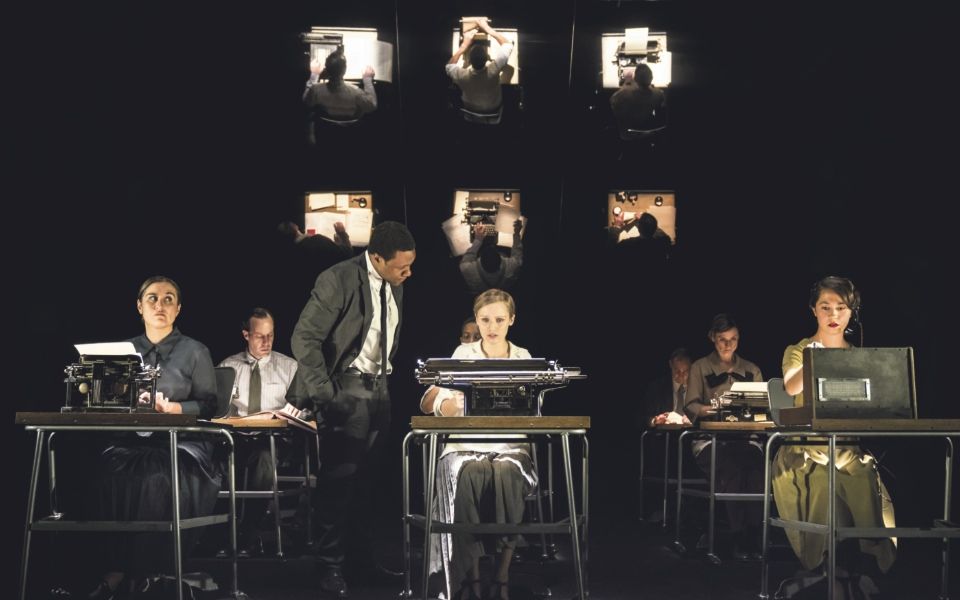Machinal at the Almeida review: Sophie Treadwell’s play is a wild, expressionistic ride through the Kafkaesque production-line of life

Machinal opens in a loud and lairy 1920s office. Overlapping conversations about sex and romance are given a staccato rhythm by the clack and ding of a dozen typewriters. The question on everyone’s lips is: who’s sleeping with who?
The juiciest gossip focuses on the girl who’s missing, her empty desk made all the more conspicuous by a giant mirror hanging at a 45 degree angle behind the stage, giving us a view directly down upon it. Is she doing it with the boss? She’s totally doing it with the boss. There’s no way she’s doing it with the boss. She wouldn’t have him. He wouldn’t have her.
When she finally emerges, dishevelled after suffering a panic attack on the train, she’s mortified by the innuendo. It turns out the boss most certainly is interested, but she’s repulsed by him. When a marriage proposal is issued – apparently inspired by his fetishisation of her pretty little hands – her instinct is to run. But he earns a good salary. Her mother would be pleased. And that’s what girls are supposed to do, right?
Sophie Treadwell’s expressionist 1928 play is split into nine vignettes following the life of this young, anxious woman. It’s loosely based on the true story of Ruth Snyder, a woman executed for murdering her husband in 1927. The trial picked apart Snyder’s life, poring over every titillating detail before the jury came to its uncompromising verdict. In the press enclosure for the trial was Treadwell herself, clearly horrified by the proceedings.
Over a blistering 90 minutes Machinal’s young anti-heroine marries, her gaudy pink honeymoon bed looming large in that vast mirror; gives birth, the maternity ward a cacophony of hissing machines and distant construction work; has a fling with a handsome ne'er-do-well; and contemplates mariticide against her obnoxious, self-obsessed hubby. The dialogue is fractured and fraught, often breaking down into a stream of consciousness as the woman attempts to drown out the barrage of her own thoughts.
The set dressing is sparse but effective, the Almeida’s brickwork sheathed in light absorbing black, creating a sense of disparate little worlds floating in an endless void.
As the scenes race by, so does time, with the action leaping from the analogue age to the 24-hour news cycle, the message presumably being that as much as things progress, so they stay the same. Between each section the stage curtains snap shut like an eye, piercing LED lights blinding the audience and shrieks of feedback creating a painful sense of displacement.
It’s thrilling stuff, a wild ride through the Kafkaesque production-line of life, in which deviancy from the norm is swiftly and ruthlessly stamped out. It’s a perfect encapsulation of Almeida artistic director Rupert Goold’s singular vision for what’s become London’s most consistently brilliant theatre, where mis-steps are rare and successes, like Machinal, are absolutely captivating.
